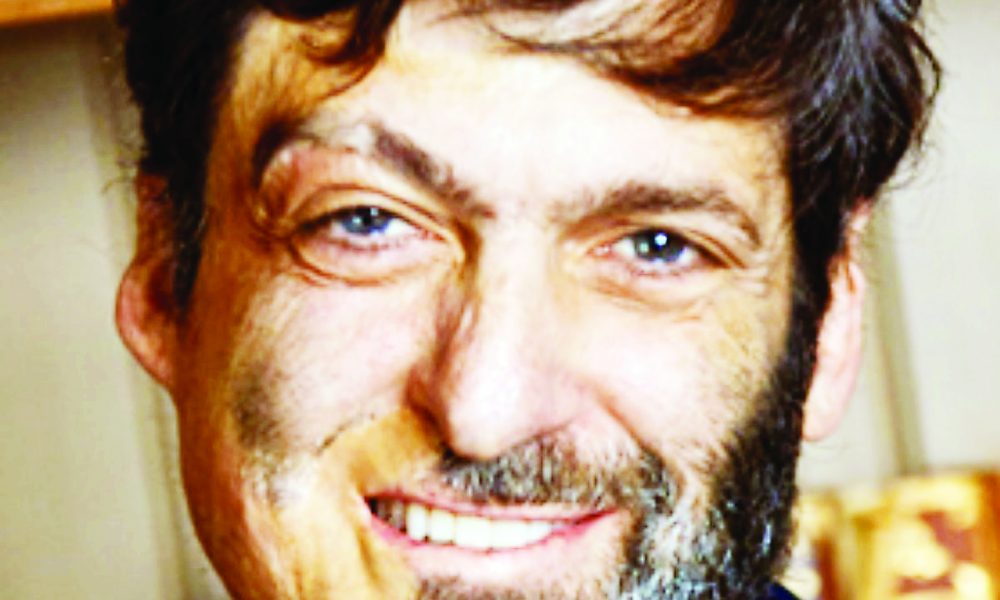Featured Item
Dissecting human behaviour, from sanitising to Shabbat

“In a big crisis, the world turns to social science,” said Dan Ariely, the renowned Israeli-American professor of psychology and behavioural economics at Duke University. “We have asked young people to take a hit in order to save the older generation. Masks are worn for other people as well as ourselves. It’s very delicate – you need real societal cohesiveness for this to work. Health is a public good, but if just 5% misbehave, everyone loses. A very small minority can spoil it for all of us.”
Ariely was in conversation with South Africa’s Chief Rabbi Dr Warren Goldstein via Zoom on Sunday. Ariely has been advising the Israeli government since March. “They asked me a simple question: How can they give instructions to people in a way that they are likely to follow?” He has helped tailor messaging on good health practices to the Haredi (religious) community, among other interventions.
“The incentives for good behaviour couldn’t be stronger, yet it’s so hard to guide human behaviour during this pandemic,” Goldstein said.
Ariely noted that Israel is a society that is, in general, positive about self-sacrifice. People go to the army and they are happy to help. “But if you feel you are the only sucker doing it, the system collapses … generosity requires everyone to be generous. If not, we fall down the slippery slope of selfishness. How do we create and maintain generosity?”
Goldstein asserted that human nature is a combination of selfishness and altruism, incentives, and generosity of spirit. He said that our initial definition of “I” is very narrow. “Life is about the journey to expand the notion of ‘I’ to your spouse, your children, your community. And leadership is also about expanding circles of influence.”
Both spoke about how, in showing our behaviour to others, we tell them (and ourselves) who we are. “It’s easier to see bad behaviour in others, such as not wearing masks,” said Ariely, “and the way we behave signals to others. Mask wearing in the street has no health effect, but it’s an important habit, a very visible one.”
Goldstein spoke about how in Judaism, we do mitzvot and model to people who we are, and they send signals to us. This strengthens faith, compassion, humanity, and kindness in a virtuous circle. “I’m asked, ‘Why are there so many physical actions in mitzvot, why is prayer so structured?’,” said Goldstein. “It’s about trying to turn you into the best possible version of yourself.”
Rituals are also important. The ritual of washing hands is a focusing activity, done on waking up and before eating bread. Actions mould thoughts, focus attention, and increase joy. “They create kavanah (intention). We think, anticipate, and pay attention,” Goldstein said.
Goldstein has had many conversations with Ariely about the Shabbat Project – his initiative that encourages Jews worldwide to keep Shabbat. They agreed from the get-go that there should be no half-measures; it would need to be “an immersive experience, a full submission” for people to derive the value and gravity of Shabbat. “What seem like restrictions allow liberation and freedom,” Goldstein said.
“Shabbat helps you let down your mental load,” Ariely said. He explained the notion of “depletion”, where we get physically and mentally tired, and it’s harder to make decisions, and harder to exert self-control. “That’s why people eat junk food at night.”
In reflecting on lockdown and the grand global experience that is COVID-19, Ariely noted that some of his habits have changed, like cooking more and meeting people from his living room. “We should make a mental note on those behaviours we want to keep. Zoom is no substitute for being with people. It’s efficient but antisocial – we know something deep is missing.”
As South Africa prepares to reopen its shuls under strict sanitary conditions, Goldstein is looking forward to the relationships and human energy generated by the bonding of communal prayer. He promised to hold more public conversations with behaviour guru Ariely in future.
